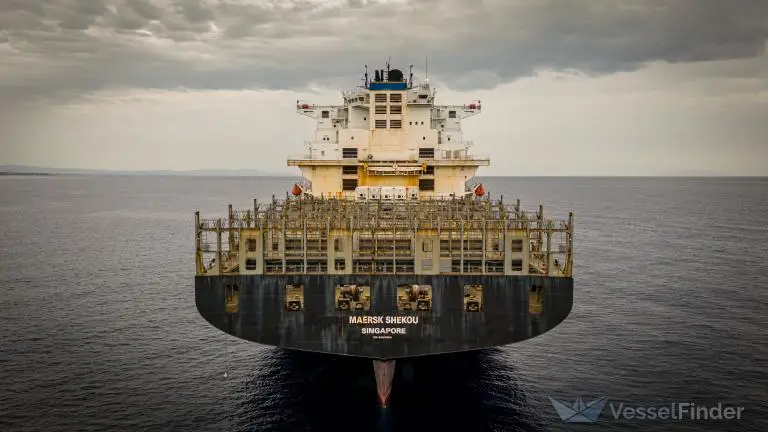How safe are our seas when the giants of the shipping world collide?
In a world where global trade relies heavily on the safe and efficient movement of goods across oceans, incidents like the recent Maersk ship collision serve as stark reminders of the inherent risks involved in maritime operations. The accident, which left two crew members injured, underscores the potential dangers that even the most advanced vessels face.
Maritime transport is the backbone of global trade, with thousands of vessels crisscrossing the oceans daily. However, the recent collision involving a Maersk container ship has brought the safety of these operations into sharp focus. While the specifics of the incident are still under investigation, what is clear is that the dangers of maritime navigation, especially in congested waters, are ever-present. This article delves into the factors that contribute to such accidents, the safety measures in place, and the broader implications for the shipping industry.
The Incident: A Wake-Up Call
The recent collision involving a Maersk container ship and another vessel is a sobering reminder that even in an age of advanced technology, the sea remains a formidable adversary. The incident occurred in a busy shipping lane, a common scenario where the risk of accidents is heightened due to the dense traffic. Two crew members sustained injuries, although fortunately, no fatalities were reported. The ship itself suffered significant damage, raising concerns about the potential for environmental impact from fuel or cargo spills.
The Causes: Navigational Challenges and Human Error
While investigations are ongoing, preliminary reports suggest that navigational challenges and potential human error played a role in the collision. In congested waters, even minor miscalculations can have catastrophic consequences. The use of automated systems on modern ships is intended to reduce the margin for error, but these systems are not infallible. The human element remains a critical factor, and training and vigilance are paramount to prevent such incidents.
The Broader Implications: Safety in Maritime Operations
The Maersk collision is not an isolated event. The International Maritime Organization (IMO) has documented several such incidents in recent years, prompting a reevaluation of safety protocols. As the shipping industry continues to grow, so too does the potential for accidents. This raises questions about the adequacy of current safety measures and the need for continuous improvement in both technology and training.
Preventative Measures: What Needs to Change?
In the aftermath of the collision, industry experts are calling for a renewed focus on safety. This includes not only improving the technology used in maritime navigation but also enhancing the training and preparedness of crew members. The incident also highlights the importance of international cooperation in enforcing safety standards and responding to emergencies. The shipping industry must adopt a proactive approach to safety, ensuring that the lessons learned from this and other incidents are translated into concrete actions to prevent future collisions.
Conclusion: Navigating the Future
The recent Maersk ship collision serves as a crucial reminder of the challenges that lie ahead for the maritime industry. As global trade continues to expand, the safety of maritime operations must remain a top priority. The incident underscores the need for continuous vigilance, improvement in safety protocols, and a commitment to protecting both human lives and the environment. Only by addressing these challenges head-on can we hope to navigate a safer future for global shipping.
The Maersk ship collision, which resulted in injuries to two crew members, highlights the ongoing risks in maritime operations. Despite advances in technology, the dangers of sea navigation, particularly in congested waters, remain significant. The incident underscores the need for improved safety measures, enhanced training, and international cooperation to prevent future accidents and ensure the safety of global shipping routes.
“The sea, like a good friend, is unforgiving when taken for granted.”
Learn more about how maritime safety is evolving and what measures are being taken to protect our seas.









